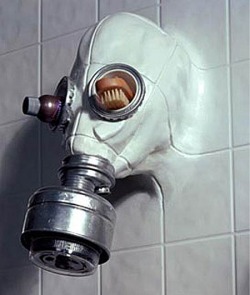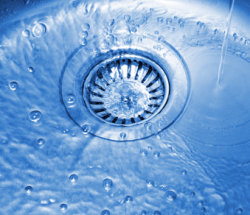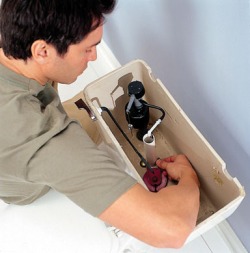
Call 888-679-5799 for a top rated plumbing Atlanta Ga contractor!
If you've got leaky pipes or faucets, running toilets, clogged drains or any number of plumbing issues, it can be very frustrating.
Often these issues require a professional to make sure you permanently fix them.
Whether you need a small plumbing repair, or a new installation, it's important to make sure you hire plumbing contractors that know what they're doing. Experienced, licensed, and pre-screened.
Got Leaky Pipes?
Leaky pipes and faucets must be one of the most frustrating things to deal with.
Not only is it messy and irritating, but letting water drip unnecessarily can rack up your water bill. The plumbing system in your home should undergo routine checks and maintenance.What to look for?
Leaking Pipes
A higher than normal water bill might be your first indication of a leaking pipe. Or you might hear the sound of running water even when all your fixtures are turned off. When you suspect a leak, check the fixtures first to make sure all the faucets are tightly closed. Then go to the water meter, if you have one. If the dial is moving, you're losing water somewhere in the system.
Locating Where The Leak Is
Try these tips to locate a leak.
- The sound of running water helps.
- If water is staining the ceiling or dripping down, the leak is probably directly above.
- Occasionally, water may travel along a joist and then stain or drip at a point some distance from the leak.
- If water stains a wall, it means there's a leak in a section of pipe.
- Any wall stain is likely to be below the actual location of the leak and you'll probably need to remove part of the wall to find it.
- Without the sound of running water and without drips or stains as evidence, leaks are more difficult to find. Check the pipes in the basement or in the crawl space.
If you've got leaky pipes or faucets, running toilets, clogged drains or any number of plumbing issues, it can be very frustrating.
Often these issues require a professional to make sure you permanently fix them.
Whether you need a small plumbing repair, or a new installation, it's important to make sure you hire plumbing contractors that know what they're doing. Experienced, licensed, and pre-screened.
Got Leaky Pipes?
Leaky pipes and faucets must be one of the most frustrating things to deal with.
Not only is it messy and irritating, but letting water drip unnecessarily can rack up your water bill. The plumbing system in your home should undergo routine checks and maintenance.What to look for?
Leaking Pipes
A higher than normal water bill might be your first indication of a leaking pipe. Or you might hear the sound of running water even when all your fixtures are turned off. When you suspect a leak, check the fixtures first to make sure all the faucets are tightly closed. Then go to the water meter, if you have one. If the dial is moving, you're losing water somewhere in the system.
Locating Where The Leak Is
Try these tips to locate a leak.
- The sound of running water helps.
- If water is staining the ceiling or dripping down, the leak is probably directly above.
- Occasionally, water may travel along a joist and then stain or drip at a point some distance from the leak.
- If water stains a wall, it means there's a leak in a section of pipe.
- Any wall stain is likely to be below the actual location of the leak and you'll probably need to remove part of the wall to find it.
- Without the sound of running water and without drips or stains as evidence, leaks are more difficult to find. Check the pipes in the basement or in the crawl space.
Shower Head Leaks

If your shower head leaks where it meets the arm, you probably need to replace the washer. To reach it, loosen the collar, using tape-wrapped rib-joint pliers. Unscrew the head from the adjusting ring.
Erratic or weak pressure usually indicates mineral buildup. To restore proper flow, clean outlet holes with a pin or unscrew a perforated face plate and soak it overnight in vinegar, then scrub it clean.
If the shower head pivots stiffly, check he washer for wear and coat the swivel ball with petroleum jelly before reassembling.
Call 888-679-5799 Today For Top Atlanta Plumbers!
Erratic or weak pressure usually indicates mineral buildup. To restore proper flow, clean outlet holes with a pin or unscrew a perforated face plate and soak it overnight in vinegar, then scrub it clean.
If the shower head pivots stiffly, check he washer for wear and coat the swivel ball with petroleum jelly before reassembling.
Call 888-679-5799 Today For Top Atlanta Plumbers!
Slow or Clogged Drains

If your sink drains slowly, it may be tempting to immediately call the plumber. However, there are many small issues that can cause your sink to drain slowly that do not require professional attention. Almost anything other than water that is flushed down a drain in large enough quantities can be enough to start the clogging process. What follows should give you an idea of the most common problems that sink drains face, and give you simple countermeasures to prevent them.
1. Hair Clogs
Hair is a common problem for drains. If any hair gets into your drain, it is probably going to stay there for a long time. Hair does not dissolve or break up easily, and as a result makes very strong clogs. In addition, it can even catch other small pieces of debris that would normally pass safely through your drain, allowing them to build up and cause further problems.
You can remove hair clogs by using drain cleaner, a plunger or drain snake. However, try to prevent them before they happen altogether.
2. Grease Clogs
Grease can also cause many problems for drains. While grease seems like it would not be solid enough to clog a drain, the truth is that there are many things that can make liquid grease solidify enough to both block the flow of water, and trap other solid particles to make a stronger clog. You can avoid grease clogs by simply not pouring grease down your sink, or pouring hot water down with it when you must do so.
3. Mineral Buildup
If you have hard water, minerals may build up in your drain pipe, causing your drains to work more slowly than usual, or even stop altogether. Mineral buildups can also cause other debris to accumulate more quickly. You can remove a mineral buildup with drain cleaner or a drain snake. Additionally, dealing with the problem at the source by dealing with your hard water problem is also a possibility.
4. Soap Scum
Soap scum is a lot like grease in your drain. Although it is a liquid when you wash it away, it can solidify and accumulate just as much as any of the other substances that form clogs. Additionally, soap scum can catch other items that are being flushed down your drains and form them into clogs. Soap scum is very difficult to avoid putting down your drains, so unfortunately there are few effective preventative measures that you can use against it.
If you still need a professional contractor, call Plumbing Atlanta GA 888-679-5799
1. Hair Clogs
Hair is a common problem for drains. If any hair gets into your drain, it is probably going to stay there for a long time. Hair does not dissolve or break up easily, and as a result makes very strong clogs. In addition, it can even catch other small pieces of debris that would normally pass safely through your drain, allowing them to build up and cause further problems.
You can remove hair clogs by using drain cleaner, a plunger or drain snake. However, try to prevent them before they happen altogether.
2. Grease Clogs
Grease can also cause many problems for drains. While grease seems like it would not be solid enough to clog a drain, the truth is that there are many things that can make liquid grease solidify enough to both block the flow of water, and trap other solid particles to make a stronger clog. You can avoid grease clogs by simply not pouring grease down your sink, or pouring hot water down with it when you must do so.
3. Mineral Buildup
If you have hard water, minerals may build up in your drain pipe, causing your drains to work more slowly than usual, or even stop altogether. Mineral buildups can also cause other debris to accumulate more quickly. You can remove a mineral buildup with drain cleaner or a drain snake. Additionally, dealing with the problem at the source by dealing with your hard water problem is also a possibility.
4. Soap Scum
Soap scum is a lot like grease in your drain. Although it is a liquid when you wash it away, it can solidify and accumulate just as much as any of the other substances that form clogs. Additionally, soap scum can catch other items that are being flushed down your drains and form them into clogs. Soap scum is very difficult to avoid putting down your drains, so unfortunately there are few effective preventative measures that you can use against it.
If you still need a professional contractor, call Plumbing Atlanta GA 888-679-5799
Toilet Problems

To be able to fix your toilet you first need to understand how it works.
Two assemblies are concealed under the lid of a toilet tank; a ball cock assembly, which regulates the filling of he tank, and a flush valve assembly, which controls the flow of water from the tank to the bowl. When someone presses the flush handle, the trip lever raises the lift wires (or chain) connected to the tank stopper. As the stopper goes up, water rushes through the valve seat into the bowl via the flush passages. The water in the bowl yields to gravity and is siphoned out the trap.
Once the tank empties, the stopper drops into the flush valve seat. The float ball trips the ball cock assembly to let a new supply of water into the tank through the tank fill tube. As the tank water level rises, the float ball rises until it gets high enough to shut off the flow of water. If the water fails to shut off, the overflow tube carries water down into the bowl to prevent an overflow.
Troubleshooting Toilet Problems
Noisy Toilet
See if you're getting restricted water flow or if there's a defective ball cock assembly.
Fixing:
- Adjust the shutoff valve first.
- Oil the trip lever or replace the ball cock washers.
- Replace the entire ball cock assembly.
- CAUTION: First turn off the water at the fixture shutoff valve. Then flush the toilet to empty the tank and sponge out any remaining water.
Running Toilet
Check for:
- Float arm not rising high enough.
- Water-filled float ball.
- Tank stopper not seating properly.
- Corroded flush valve seal.
- Cracked overflow tube.
- Ball cock valve doesn't shut off.
Fixing:
- Bend float arm down or away from tank wall.
- Replace ball.
- Adjust stopper guide rod and lift wires or chain. Replace defective stopper.
- Scour valve seat or replace.
- Replace tube or install new flush valve assembly.
- Oil trip lever, replace faulty washers, or install new ball cock assembly.
Clogged Toilet
Check for:
- Blockage in drain.
Remedy:
- Remove blockage with plunger or plumbers snake
Inadequate flush
Check for:
- Faulty linkage between handle and trip lever.
- Tank stopper closes before tank empties.
- Leak between tank and bowl.
- Clogged flush passages.
Remedies:
- Tighten setscrew on handle linkage or replace handle.
- Adjust stopper guide rod and lift wires or chain.
- Tighten tank bolts or couplings or replace gasket.
- Clear obstructions from passages with wire.
Leaking Toilet
- To stop a leak between the tank and bowl of a bowl-mounted toilet tank, tighten the bolts in the tank, or remove them and replace their gaskets.
- To seal the connections on a wall-mounted tank, tighten the couplings on the pipe connecting the tank and bowl, or unscrew the couplings, remove the pipe, and replace the washers.
- If the bowl leaks around its base, you'll have to lift the bowl up and reseal it along the base.
If you don 't want to do these jobs yourself, call in a professional plumber. Plumbing Atlanta GA at 888-679-5799
Two assemblies are concealed under the lid of a toilet tank; a ball cock assembly, which regulates the filling of he tank, and a flush valve assembly, which controls the flow of water from the tank to the bowl. When someone presses the flush handle, the trip lever raises the lift wires (or chain) connected to the tank stopper. As the stopper goes up, water rushes through the valve seat into the bowl via the flush passages. The water in the bowl yields to gravity and is siphoned out the trap.
Once the tank empties, the stopper drops into the flush valve seat. The float ball trips the ball cock assembly to let a new supply of water into the tank through the tank fill tube. As the tank water level rises, the float ball rises until it gets high enough to shut off the flow of water. If the water fails to shut off, the overflow tube carries water down into the bowl to prevent an overflow.
Troubleshooting Toilet Problems
Noisy Toilet
See if you're getting restricted water flow or if there's a defective ball cock assembly.
Fixing:
- Adjust the shutoff valve first.
- Oil the trip lever or replace the ball cock washers.
- Replace the entire ball cock assembly.
- CAUTION: First turn off the water at the fixture shutoff valve. Then flush the toilet to empty the tank and sponge out any remaining water.
Running Toilet
Check for:
- Float arm not rising high enough.
- Water-filled float ball.
- Tank stopper not seating properly.
- Corroded flush valve seal.
- Cracked overflow tube.
- Ball cock valve doesn't shut off.
Fixing:
- Bend float arm down or away from tank wall.
- Replace ball.
- Adjust stopper guide rod and lift wires or chain. Replace defective stopper.
- Scour valve seat or replace.
- Replace tube or install new flush valve assembly.
- Oil trip lever, replace faulty washers, or install new ball cock assembly.
Clogged Toilet
Check for:
- Blockage in drain.
Remedy:
- Remove blockage with plunger or plumbers snake
Inadequate flush
Check for:
- Faulty linkage between handle and trip lever.
- Tank stopper closes before tank empties.
- Leak between tank and bowl.
- Clogged flush passages.
Remedies:
- Tighten setscrew on handle linkage or replace handle.
- Adjust stopper guide rod and lift wires or chain.
- Tighten tank bolts or couplings or replace gasket.
- Clear obstructions from passages with wire.
Leaking Toilet
- To stop a leak between the tank and bowl of a bowl-mounted toilet tank, tighten the bolts in the tank, or remove them and replace their gaskets.
- To seal the connections on a wall-mounted tank, tighten the couplings on the pipe connecting the tank and bowl, or unscrew the couplings, remove the pipe, and replace the washers.
- If the bowl leaks around its base, you'll have to lift the bowl up and reseal it along the base.
If you don 't want to do these jobs yourself, call in a professional plumber. Plumbing Atlanta GA at 888-679-5799
